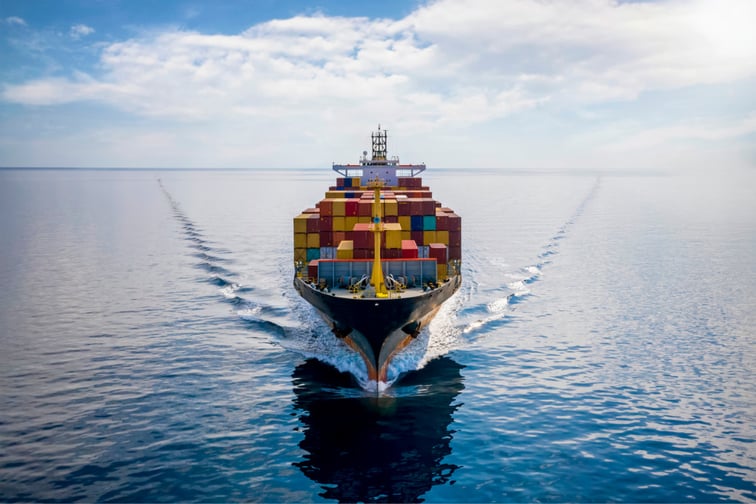

In 2021, 54 total losses of vessels were reported globally, 11 less than in 2020. This represented a 57% decline over 10 years, progress AGCS ascribed to an increased focus on safety measures on multiple fronts, including training and safety programmes, improved ship design, technology, and better regulation.
One in five losses in 2021 occurred in South China, Indochina, Indonesia, and the Philippines maritime region – the ‘global loss hotspot’ which accounted for 25% of losses in the past decade, driven by high levels of trade, congested ports, older fleets, and extreme weather.
Half the vessels lost in 2021 were cargo ships. Foundered (sunk/submerged) was the main cause (60%) of total losses.
While total losses declined, the number of reported shipping casualties or incidents rose to 3,000, most of them in the British Isles. Machinery damage accounted for over one-third of the incidents globally (1,311), followed by collision (222) and fires (178). AGCS noted that the number of fires increased by almost 10% since 2020.
Russia’s invasion of Ukraine severely affected the industry, causing loss of life and vessels in the Black Sea, disruption to trade, and the growing burden of sanctions. It worsened the shortage already faced by the global maritime industry, with Russian seafarers accounting for over 10% of the workforce and Ukraine accounting for another 4%.
Looking forward, an expanded ban on Russian oil could push the cost of bunger fuel up and ship owners towards alternative, potentially sub-standard fuels, which in turn could result in machinery breakdown claims. At the same time, security agencies warn of a heightened prospect of cyber risks for the shipping sector, including GPS jamming, electronic interference, and automatic identification system (AIS) spoofing.
The study predicted that the evolving range of sanctions against Russian interests – and the burden of complying with them – would present a challenge to various parts of the transport supply chain, including banking and insurance services.
“The insurance industry is likely to see a number of claims under specialist war policies from vessels damaged or lost to sea mines, rocket attacks, and bombings in conflict zones,” said Justus Heinrich, global product leader, marine hull, at AGCS. “Insurers may also receive claims under marine war policies from vessels and cargo blocked or trapped in Ukrainian ports and coastal waters.”
The study also called cargo fires a ‘priority concern’ following the 2021 fires on board the roll-on, roll-off car carrier Felicity Ace and container ship X-Press Pearl, both of which resulted in total losses. Over 70 fires on container ships were reported in the past five years, many starting in containers due to non- or mis-declaration of hazardous cargo such as chemicals or batteries. Fires on large vessels spread quickly, the study noted, and often result in the crew abandoning ship – a cause of significant increase to the final cost of an incident.
Car carriers have also been increasingly lost to fire, starting in cargo holds caused by malfunctions or electrical short circuits in vehicles before spreading quickly through open decks. AGCS noted that the growing numbers of electric vehicles transported by sea could complicate the matter further, as existing countermeasures may not respond effectively to an EV blaze. Loss expenses would be massive given the value of the car cargo, the cost of wreck removal, and pollution mitigation.
“Too often, what should be a manageable incident on a large vessel can end in a total loss,” said Captain Rahul Khanna, global head of marine risk consulting at AGCS. “Salvage is a growing concern. Environmental concerns are contributing to rising salvage and wreck removal costs as ship owners and insurers are expected to go the extra mile to protect the environment and local economies.”
Higher salvage costs, including specialist salvage equipment, are a burden increasingly borne by cargo owners and their insurers. ’General average’, the legal process by which cargo owners proportionately share losses and the cost of saving a maritime venture, has become both a frequency and severity event.
The study also noted trends brought about by COVID-19. Foremost among these was the high demand for seafarers, as well as many skilled and experienced ones leaving the industry despite it. This has led AGCS to predict a shortfall of officers in five years. For those who remained, low morale from commercial pressures, compliance duties, and workloads have created a work situation prone to mistakes; the study revealed that 75% of shipping incidents involve human error.
With demand for shipping at a record high due to COVID-19, some owners have extended the working life of vessels. However, even well-maintained, older container and cargo vessels (15 to 25-years-old) are likelier to result in claims, while systems and machinery become more prone to breakdown.
Finally, the report noted that burgeoning international efforts to tackle climate change have pressured the shipping industry to accelerate its sustainability efforts, given how its greenhouse gas emissions grew by 10% between 2012 and 2018. A growing number of vessels are already switching to liquefied natural gas (LNG), while other alternative fuels and electric-powered ships are under development.
The transition to alternative fuels may bring heightened risk of machinery breakdown claims, AGCS predicted, as new technology is tried and crews adapt to new procedures.
